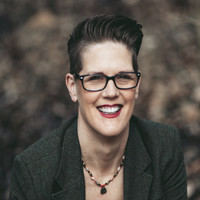Rebellion is an adolescent's inarticulate way of saying, "I want control." Parents can support that quest for control within clear boundaries of what is safe and what is legal. Rebellion is a good thing, and it's also a key part of developing the critical thinking skills a person needs to successfully "adult." The key is a secure environment where mistakes can be made with the support of an adult who loves them.
When our daughters began dating, my husband struggled with what he considered wasted energy. "Why should they be focused on boys when there's schoolwork to do?" Our daughters weren't going to marry the boys they dated in high school. But they would certainly learn from those relationships. Those early experiences with dating offered important lessons.
I made sure our girls knew that I was a resource they could trust during these budding romances. I'd use alone time in the car to check in and see if they had questions. I didn't need to know details, but I'd tell my girls, "I am here to help you navigate things."
They needed to know I was there to help. Not judge. There was no shame for exploring the new, exciting world of dating.
As a clueless kid, I sought answers about boys from my older sisters. My husband, on the other hand, was not permitted to date at all and never even attended a high school dance. He was left to flounder through experiences on his own in college. We wanted to parent our children in a more trustworthy way.
To just deliver the "yes" or "no" of granting permissions does little to teach kids anything, and we wanted to foster critical thinking in our children. So we tried to ask more questions and make fewer decisions as our children reached high school.
Questions like:
Does what you want to do match what you think you should do?
How will your decision impact the rest of what you have going on right now?
This standard went for learning how to navigate employment, school and social activities. The purpose was to help them think through situations and figure out what decision would best align with their goals and values.
A common situation that came up was what to do when they weren't feeling well. "Can I stay home from school? From work?" They'd ask me.
My standard response was, "I can't answer that for you because I don't know how you're feeling." Then I would walk them through with questions like: Are you contagious? Exhausted and needing a mental health day? Etc...
It's often difficult to make decisions when considering what is right for you in the context of how it affects everyone and everything else around you.
By senior year of high school, we wanted the kids to make most of their decisions on their own and communicate their plans to us. If I felt something was off-kilter, I'd ask more questions.
Very seldom did I intervene or alter their plans. If something didn't work out like they'd hoped, we'd talk through that, too. That's life. We make decisions to the best of our ability and then we roll with the consequences. Anticipating the effects of one's choices is part of being a thoughtful adult.
By making the teen years more about supporting independence and less about the back-and-forth power struggle over who knows best, we helped our kids ease into "real life" in a way that we hoped made decision-making as new adults less overwhelming.
A good friend once told me, "To reflect on the past in order to perform in the present changes the future." I'd like to update this specifically for parenting: To reflect on one's childhood in order to parent in the present changes the future.
Check out Bonnie's weekly YouTube videos at https://www.youtube.com/bonniejeanfeldkamp. To find out more about Bonnie Jean Feldkamp and read features by other Creators Syndicate writers and cartoonists, visit the Creators Syndicate website at www.creators.com.
Photo credit: Vladislav Babienko at Unsplash






View Comments